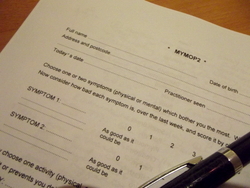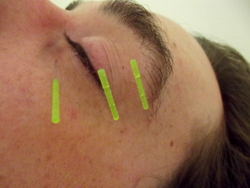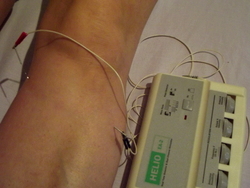
A UK study looking at traditional Chinese acupuncture offered by a professional acupuncturist in a busy practice of ten GPs, found that it resulted in clinically relevant improvements in patients’ self-assessed state of well-being, across a whole variety of chronic conditions.
A total of 46 patients (mean age 50) were evaluated, and the majority received six acupuncture treatments. All participants completed a self-assessment survey known as MYMOP (Measure Your Medical Outcome Profile), both before and after treatment. The majority (46%)of referrals were requested by patients as awareness of the service grew, 41% were requested by the GP, and 13% were requested jointly by the GP and patient. The service ran for 18 months.
Most conditions seen, were chronic: 74% had experienced their condition for over one year, and 56% had had it for more than five years. The MYMOP forms recorded 58 separate symptoms, of which 72% were musculoskeletal, 9% neurological, 5% psychological, and 3.5% in other categories.
The MYMOP profiles showed clinically and statistically significant improvements across all components. Of the 42 patients who completed a patient experience survey, all were satisfied with the efficiency of the service, 81%
rating it as excellent. Patients particularly valued reductions in pain and stress levels, and improvements in quality of life.
(Patient Experience of Acupuncture in a GP Practice. Complementary Therapies in Clinical Practice, August 2012.)



